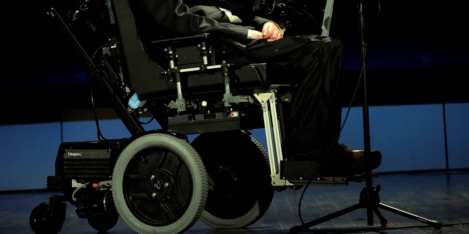March 21, 2018
A third of UK employees think Brexit will negatively impact their current employment
 A year since the invocation of Article 50 to beginning the process of the UK leaving the EU, employee services provider Personal Group has published a survey based on new research which claims that 32 percent of UK employees predict that Brexit will negatively impact their current employment. The study of around 1,100 UK employees claims that team leaders and managers are the most uncertain about their employment post Brexit, with 42 percent admitting they are unsure about how it will affect their current employment. Interestingly, men are more optimistic than women, with twice as many men expecting the change to have a positive impact on their employment versus women (3.5 percent versus 1.6 percent).
A year since the invocation of Article 50 to beginning the process of the UK leaving the EU, employee services provider Personal Group has published a survey based on new research which claims that 32 percent of UK employees predict that Brexit will negatively impact their current employment. The study of around 1,100 UK employees claims that team leaders and managers are the most uncertain about their employment post Brexit, with 42 percent admitting they are unsure about how it will affect their current employment. Interestingly, men are more optimistic than women, with twice as many men expecting the change to have a positive impact on their employment versus women (3.5 percent versus 1.6 percent).







 The mental health of employees, especially those working within high pressured working environments are the number one concerns for UK CEOs. Nearly three quarters (73 percent) of respondents to the annual wellbeing report ‘
The mental health of employees, especially those working within high pressured working environments are the number one concerns for UK CEOs. Nearly three quarters (73 percent) of respondents to the annual wellbeing report ‘


 Cities in emerging markets, though challenged by economic and political turmoil, are catching up with top ranking cities following decades of investing in infrastructure, recreational facilities and housing in order to attract talent and multinational businesses, finds Mercer’s 20th annual
Cities in emerging markets, though challenged by economic and political turmoil, are catching up with top ranking cities following decades of investing in infrastructure, recreational facilities and housing in order to attract talent and multinational businesses, finds Mercer’s 20th annual 
 The challenge to achieve gender equality at work isn’t made any easier by the attitudes of some employers. Although men increasingly want to be more present at home, currently fathers are
The challenge to achieve gender equality at work isn’t made any easier by the attitudes of some employers. Although men increasingly want to be more present at home, currently fathers are 
 Artificial intelligence systems need to be accountable for human bias at AI becomes more prevalent in recruitment and selection, attendees at the Employers Network for Equality & Inclusion’s annual conference have been warned. Hosted by NatWest, the conference, Diversity & Inclusion: The Changing Landscape heard from experts in ethics, psychology and computing. They explained that AIs learnt from existing data, and highlighted how information such as performance review scores and employee grading was being fed in to machines after being subjected to human unconscious bias. Dr David Snelling, the programme director for artificial intelligence at technology giant Fujitsu, illustrated how artificial intelligence is taught through human feedback. Describing how huge data sets were fed into the program, David explained that humans corrected the AI when it used that data to come to an incorrect conclusion, using this feedback to teach the AI to work correctly. However, as this feedback is subject to human error and bias, this can become embedded in the machine.
Artificial intelligence systems need to be accountable for human bias at AI becomes more prevalent in recruitment and selection, attendees at the Employers Network for Equality & Inclusion’s annual conference have been warned. Hosted by NatWest, the conference, Diversity & Inclusion: The Changing Landscape heard from experts in ethics, psychology and computing. They explained that AIs learnt from existing data, and highlighted how information such as performance review scores and employee grading was being fed in to machines after being subjected to human unconscious bias. Dr David Snelling, the programme director for artificial intelligence at technology giant Fujitsu, illustrated how artificial intelligence is taught through human feedback. Describing how huge data sets were fed into the program, David explained that humans corrected the AI when it used that data to come to an incorrect conclusion, using this feedback to teach the AI to work correctly. However, as this feedback is subject to human error and bias, this can become embedded in the machine.















March 21, 2018
There are at least some reasons to be optimistic about the UK’s tech sector post Brexit
by Gary Chandler • Comment, Property, Technology, Workplace design
(more…)